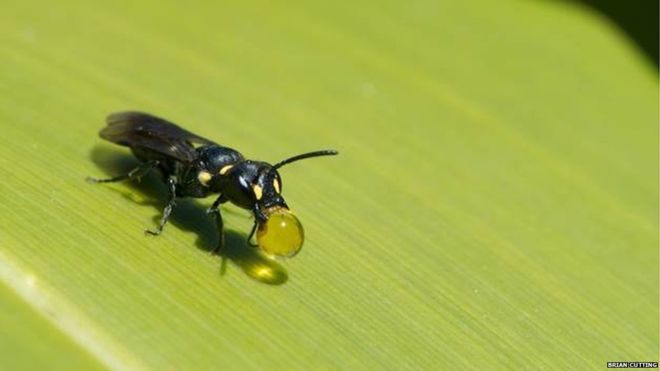Pollinators are under threat at a global scale
International scientists are calling for action to “future-proof” the prosperity of pollinating insects, birds and mammals.
They say agricultural expansion, new pesticides and emerging viruses present the biggest risks in coming decades, according to BBC.
And the bats that pollinate plants in tropical and desert climates need legal protection, they report in PeerJ.
Some 35% of global crop production and more than 85% of wild flowering plants rely to some degree on pollination.
The research took a horizon-scanning approach to identify future issues of concern over the next three decades.
“At the moment with pollinators, it’s always about mitigation…we’re always playing catch-up,” said Prof Mark Brown of Royal Holloway University of London, who led the research.
“The world is changing very fast, agricultural practices are changing, the way humans live is changing and that could unleash a whole range of future opportunities for pollinators but also threats to them,” he added.
“By looking into the future – by horizon-scanning – we hope to identify those, to actually enable policy and practice that grows as those changes occur, and so rather than trying to go back and fix a problem we stop the problems from happening in the first place.”
 The study by 17 scientists, government researchers and NGOs identified six main issues:
The study by 17 scientists, government researchers and NGOs identified six main issues:
Corporate control of agriculture at the global scale – with a small number of companies controlling land use, there are opportunities to protect pollinators but concerns that homogenous land use could damage diversity
A new class of insecticides known as sulfoximines (for example, sulfoxaflor) – the researchers say these must be tested for sub-lethal affects on wild pollinators
New emerging viruses
Using bees other than the honeybee to pollinate managed crops – this may have advantages, but risks need to be assessed
Effects of extreme weather/climate change
Reduced chemical use outside agriculture – opportunities to build on this on a larger scale for the benefits of pollinating insects.
The experts said consolidation of the agri-food industries was the single biggest threat to pollinators.
“This homogenisation of agricultural practices effectively means that corporates are applying blanket production systems to landscapes that are vastly different, significantly reducing the diversity and number of native pollinators,” said Sarina Jepsen, deputy chair of the IUCN bumblebee specialist group.
However, the study also highlighted positive opportunities for protecting pollinators, such as reducing chemical use in gardens and parks or by working with corporations on management strategies.
H.Z

